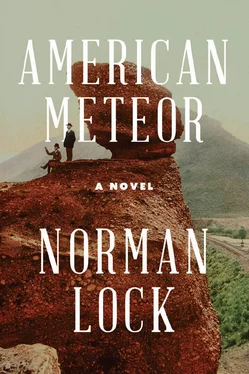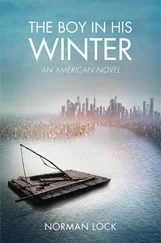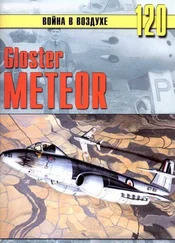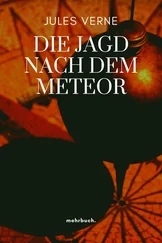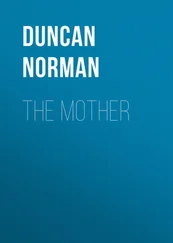We had been talking of this and that, the way strangers will when their lives momentarily converge. When darkness entered the room, we fell silent. Spotswood lit two candles, and we sat together in the deepening night, the ceiling thatched with shadows. I think he was keeping a vigil for the man whose body lay a few blocks to the west, where the Liberty Bell, like him, was broken and mute. To tell the God’s honest truth, I don’t know what thoughts might have been chasing one another round in Spotswood’s brain. My own were none too clear. I strained to keep my mind centered on Lincoln, but it wandered elsewhere: to Brooklyn and my mother’s grave, Five Forks and the Armory Square Hospital, Walt Whitman and oysters.
I wanted Spotswood to remember me — God knows why. I told him my name several times. I would have written it down if there’d been a pencil. I wished I had some little gift to make him in honor of our encounter and the entanglement of our two lives. He’d saved mine, after all. Maybe I was just glad to have been born a white man. And for the first time in my life, I was glad to have been born in Brooklyn! Supposing I’d been reared up in the South, the son of a plantation owner. What would have become of me? Very possibly, I’d have died, or been put in a prison cell next to Jeff Davis’s, or hanged like Captain Wirz, commandant of Andersonville, who let thirteen thousand Union men perish. And where would I be now? Damned, most likely. Strange the ways of fate, as the saying goes. This fact might interest you, Jay: The pistol with which Booth shot Lincoln dead was made in Philadelphia by the gunsmith Henry Derringer. And there I was, in Philadelphia, dressed in clothes belonging to a slave freed by the dead man I was escorting to his final and lasting repose. Yes, I had a destiny all right. Like it or not.
My clothes dry, I dressed and thanked Spotswood for his kindness with what I believe was genuine warmth, taking his black hand and holding it in mine — the same hand that would hold a Springfield girl’s and also put a bullet into the forehead of hateful Jake Lowry. The hand, you know, was shaped for murder and for love.
Springfield, Illinois, December 8, 1865–January 14, 1866
The day following the Thanksgiving debacle, I woke, feeling grainy-eyed and irritable from too little sleep. I dressed in my uniform, pinned on my medal, and walked down Jefferson Street to the eatery where I took my breakfast. I dawdled over my eggs, thinking of the Colt pistol in my waistband and what the advertisement claimed: “Abe Lincoln may have freed all men, but Sam Colt made them equal.” I didn’t feel equal to anybody, except for old Spotswood. I was always subject to mental vicissitudes: the highs and lows of a mind inadequately moored. It must have made me a difficult person to get along with, which may explain why I spent the greater part of my life alone. But that was my way, and nobody can help his way.
“Snow coming,” said the grizzled counterman to break the silence. He wore a damp dish towel across his shoulder with the panache of a diplomat or a Mexican bandit. He gave me a meaningful look. “This afternoon or maybe tonight.”
I nodded, unwilling to discourse on the subject of weather, good or bad. I had things on my mind. But so as not to get a reputation for being standoffish and superior, I beamed at him before returning to my scrambled eggs. He coughed, as if to introduce a further elaboration. I fixed my eye on the end of my fork, refusing to be drawn in. A woman entered, making the bell above the door hop, and ordered fried potatoes for her husband, laid up after a hod of bricks had fallen on him. I felt safe for the moment from distraction.
Ambition was not yet among my virtues. Or is it a vice? I’d aspired to nothing, striven for nothing, envied no man his good fortune or lot in life. My desires had been modest enough to make me a Christian example of temperance. Or a Hindu one, for that matter. Religions look very much the same, once you scrape off the crust. God is everywhere, unless He is nowhere. But I believed myself to be in love with this Springfield girl. Taking stock, I had little to offer her. The feed and grain store didn’t pay much. I managed to make ends meet only because I was living gratis in the funeral car. Even if it weren’t soon be on its way to Omaha, I couldn’t expect a young bride to take up residence where two bodies had ripened into corruption, no matter how famous their former owners. When the fire’s gone out, a leper is the equal of a king — and vice versa — death being the one true democracy. Until my prospects improved, I couldn’t expect to marry her.
How could I have forgotten the name of someone so dear to me? Unless I’d mistaken my feelings. What did I know of love? What do I know of it now? Heartbreak. Heartbreak and a misery — that’s what love is. But what if the confidences I’ve received in the whiskey-scented confessionals of barrooms, barracks, and backwater depots down the years from love’s besotted, disappointed, jilted, and abused victims are untrue? What if love is really what the poets say of it? I don’t feel equal to the subject. Desire, maybe; the reckless passions that scald without warmth or tenderness, certainly. But not love. Of this, I felt sure even then. I pushed a strip of bacon cased in congealed fat around my plate, feeling once more in the trough of the wave, waiting for momentum to lift me up. Disgusted, I slapped a few coins on the table, wiped my mustache, and left.
Tomas Bergman, who owned the business, had gone to Lake Springfield for the ice fishing, as he did each year when the water froze. Except for a half-deaf old black man who hauled feed sacks in and out of the barn, I was alone in the store. Customers would be few on the day after Thanksgiving. Dog-tired, I lay down on a shelf behind the counter and slept. I dreamed, I suppose; but I’ll be damned if I can remember what. No, I won’t make up a dream simply to round out my story. While I might not be interested in history, except for the parts I clambered through, I’d like to tell the truth, insofar as I am able and inasmuch as it can be told. Funny, how I’d come to believe the fabrication concerning the loss of my eye!
Spotswood had said that to start again was impossible; that all we could do was wait. He didn’t say for what, nor did he say why we couldn’t begin anew. I should have asked, but the twilight that had brought out in him a strain of melancholy befuddled me and turned my tongue to India rubber. Night came and silenced him with gloomy thoughts: of Honest Abe, perhaps, stretched out inside his trestled coffin, or of some private, embittering grief that caused a portion of him to despise Lincoln, me, and the entire white race. Yet, I’d seen him touch my uniform the way someone would Jesus’ robe or shroud. Maybe an old slave’s habit of ingratiation remained in him, stubborn and ineradicable. No, he was not so devious a man. I wish I could have seen into his heart, which, like everyone else’s, was shut. I sometimes wonder if I see truly into my own.
A chicken farmer from out by Riverton came in and stamped snow off his boots, leaving two wet puddles to dry as he walked to the counter and rang the little brass bell. Jolted, I slunk out of my roost and onto the floor behind the counter and pretended to be counting scuttles.
“Yes, sir,” I said, getting to my feet. “What can I do for you?”
He placed his order, scratched a raspy cheek, in a few words commented on the snow falling generally over the county, and left the store — satisfied he had done neither more nor less than he was obliged by the social contract, whose ghost is felt by all men and women, even the meanest who flout it. In a world of strangers, this rough chicken farmer was determined not to stand out from the rest. Thus are we ever to one another, and alone. Like Grant in the midst of his army, like Lincoln in his White House, like my father with his bottle, like my brother in an alleyway, surrounded by roughnecks who would break his neck for their profit or pleasure, like Ben Franklin with his pennies and his loaves of bread when he arrived in Philadelphia to start afresh, and like Spotswood, who had emptied his house and was waiting in the failing light for whatever would come next.
Читать дальше
